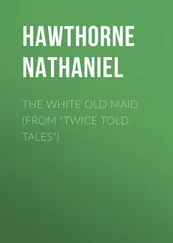“And now,” continued Zenobia, “I must go and help get supper. Do you think you can be content, instead of figs, pineapples, and all the other delicacies of Adam’s supper-table, with tea and toast, and a certain modest supply of ham and tongue, which, with the instinct of a housewife, I brought hither in a basket? And there shall be bread and milk, too, if the innocence of your taste demands it.”
The whole sisterhood now went about their domestic avocations, utterly declining our offers to assist, further than by bringing wood for the kitchen fire from a huge pile in the back yard. After heaping up more than a sufficient quantity, we returned to the sitting-room, drew our chairs close to the hearth, and began to talk over our prospects. Soon, with a tremendous stamping in the entry, appeared Silas Foster, lank, stalwart, uncouth, and grizzly-bearded. He came from foddering the cattle in the barn, and from the field, where he had been ploughing, until the depth of the snow rendered it impossible to draw a furrow. He greeted us in pretty much the same tone as if he were speaking to his oxen, took a quid from his iron tobacco-box, pulled off his wet cowhide boots, and sat down before the fire in his stocking-feet. The steam arose from his soaked garments, so that the stout yeoman looked vaporous and spectre-like.
“Well, folks,” remarked Silas, “you’ll be wishing yourselves back to town again, if this weather holds.”
And, true enough, there was a look of gloom, as the twilight fell silently and sadly out of the sky, its gray or sable flakes intermingling themselves with the fast-descending snow. The storm, in its evening aspect, was decidedly dreary. It seemed to have arisen for our especial behoof, — a symbol of the cold, desolate, distrustful phantoms that invariably haunt the mind, on the eve of adventurous enterprises, to warn us back within the boundaries of ordinary life.
But our courage did not quail. We would not allow ourselves to be depressed by the snowdrift trailing past the window, any more than if it had been the sigh of a summer wind among rustling boughs. There have been few brighter seasons for us than that. If ever men might lawfully dream awake, and give utterance to their wildest visions without dread of laughter or scorn on the part of the audience, — yes, and speak of earthly happiness, for themselves and mankind, as an object to be hopefully striven for, and probably attained, we who made that little semicircle round the blazing fire were those very men. We had left the rusty iron framework of society behind us; we had broken through many hindrances that are powerful enough to keep most people on the weary treadmill of the established system, even while they feel its irksomeness almost as intolerable as we did. We had stepped down from the pulpit; we had flung aside the pen; we had shut up the ledger; we had thrown off that sweet, bewitching, enervating indolence, which is better, after all, than most of the enjoyments within mortal grasp. It was our purpose — a generous one, certainly, and absurd, no doubt, in full proportion with its generosity — to give up whatever we had heretofore attained, for the sake of showing mankind the example of a life governed by other than the false and cruel principles on which human society has all along been based.
And, first of all, we had divorced ourselves from pride, and were striving to supply its place with familiar love. We meant to lessen the laboring man’s great burden of toil, by performing our due share of it at the cost of our own thews and sinews. We sought our profit by mutual aid, instead of wresting it by the strong hand from an enemy, or filching it craftily from those less shrewd than ourselves (if, indeed, there were any such in New England), or winning it by selfish competition with a neighbor; in one or another of which fashions every son of woman both perpetrates and suffers his share of the common evil, whether he chooses it or no. And, as the basis of our institution, we purposed to offer up the earnest toil of our bodies, as a prayer no less than an effort for the advancement of our race.
Therefore, if we built splendid castles (phalansteries perhaps they might be more fitly called), and pictured beautiful scenes, among the fervid coals of the hearth around which we were clustering, and if all went to rack with the crumbling embers and have never since arisen out of the ashes, let us take to ourselves no shame. In my own behalf, I rejoice that I could once think better of the world’s improvability than it deserved. It is a mistake into which men seldom fall twice in a lifetime; or, if so, the rarer and higher is the nature that can thus magnanimously persist in error.
Stout Silas Foster mingled little in our conversation; but when he did speak, it was very much to some practical purpose. For instance: — ”Which man among you,” quoth he, “is the best judge of swine? Some of us must go to the next Brighton fair, and buy half a dozen pigs.”
Pigs! Good heavens! had we come out from among the swinish multitude for this? And again, in reference to some discussion about raising early vegetables for the market: — ”We shall never make any hand at market gardening,” said Silas Foster, “unless the women folks will undertake to do all the weeding. We haven’t team enough for that and the regular farm-work, reckoning three of your city folks as worth one common field-hand. No, no; I tell you, we should have to get up a little too early in the morning, to compete with the market gardeners round Boston.”
It struck me as rather odd, that one of the first questions raised, after our separation from the greedy, struggling, self-seeking world, should relate to the possibility of getting the advantage over the outside barbarians in their own field of labor. But, to own the truth, I very soon became sensible that, as regarded society at large, we stood in a position of new hostility, rather than new brotherhood. Nor could this fail to be the case, in some degree, until the bigger and better half of society should range itself on our side. Constituting so pitiful a minority as now, we were inevitably estranged from the rest of mankind in pretty fair proportion with the strictness of our mutual bond among ourselves.
This dawning idea, however, was driven back into my inner consciousness by the entrance of Zenobia. She came with the welcome intelligence that supper was on the table. Looking at herself in the glass, and perceiving that her one magnificent flower had grown rather languid (probably by being exposed to the fervency of the kitchen fire), she flung it on the floor, as unconcernedly as a village girl would throw away a faded violet. The action seemed proper to her character, although, methought, it would still more have befitted the bounteous nature of this beautiful woman to scatter fresh flowers from her hand, and to revive faded ones by her touch. Nevertheless, it was a singular but irresistible effect; the presence of Zenobia caused our heroic enterprise to show like an illusion, a masquerade, a pastoral, a counterfeit Arcadia, in which we grown-up men and women were making a play-day of the years that were given us to live in. I tried to analyze this impression, but not with much success.
“It really vexes me,” observed Zenobia, as we left the room, “that Mr. Hollingsworth should be such a laggard. I should not have thought him at all the sort of person to be turned back by a puff of contrary wind, or a few snowflakes drifting into his face.”
“Do you know Hollingsworth personally?” I inquired.
“No; only as an auditor — auditress, I mean — of some of his lectures,” said she. “What a voice he has! and what a man he is! Yet not so much an intellectual man, I should say, as a great heart; at least, he moved me more deeply than I think myself capable of being moved, except by the stroke of a true, strong heart against my own. It is a sad pity that he should have devoted his glorious powers to such a grimy, unbeautiful, and positively hopeless object as this reformation of criminals, about which he makes himself and his wretchedly small audiences so very miserable. To tell you a secret, I never could tolerate a philanthropist before. Could you?”
Читать дальше












